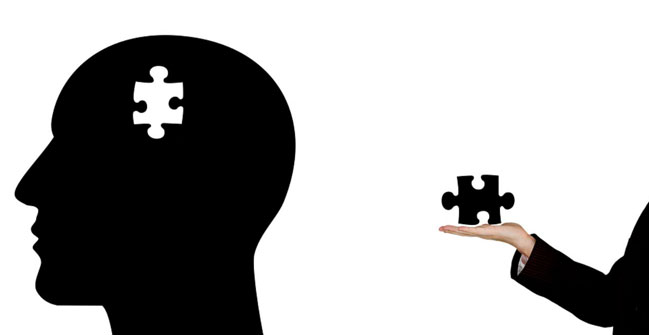
Studies suggest that the lack of sleep may be linked to an increased risk for poor mental health among college students. According to the research presented at the Associated Professional Sleep Societies in 2019, college students increase their chances of developing mental health symptoms by 20% with each night of insufficient sleep.
To better understand why sleep is so important especially while having to deal with a lot of academic assignments, let’s get into the characteristics of a sleep cycle.
How Does Sleep Affect Mental Health?
During sleep, a person experiences the so-called “90 minutes cycles” that are comprised of two major categories of sleep. First, there’s the “quiet sleep” category, which is defined by a progression of four particular stages that are leading to the “deep sleep” category.
During the quiet sleep, the muscles relax, the breathing and the heart rate slow down, and the body temperature drops. Quiet sleep helps our body regulate physiological changes, an aspect that is heavily linked to our immune system.
The “deep sleep” category is called REM sleep. This is the period when we pass over to the dream’s realm. When we enter this stage, our body temperature, our heart rate and breathing, and our muscles are starting to function exactly like when we are awake. Various studies suggest that REM sleep contributes to emotional health and enhances memory and learning in complex ways.
What researches have found is that the lack of proper sleep and the disruption of sleep cycles are causing the neurotransmitters and our stress hormones to “run wild” and cause different negative consequences. According to statements spoken by mental health experts during the mental health awareness month, there are four main negative effects of
Impaired emotional regulation
- Disrupted thinking
- Increased chances of developing psychiatric disorders
- Improved stress during the day
When students experience a lack of sleep symptoms, they often neglect them, thus intensifying their sleep deprivation symptoms and increasing the risk of developing various types of sleep disorders.
The Mental Health Risks of Sleep Deprivation
The lack of sleep isn’t the direct cause of mental health issues among students. In fact, there is a significant overlap between various types of sleep disorders (narcolepsy, insomnia, sleep movement disorders, obstructive sleep apnea, etc.) and mental health issues.
When it comes to students, insomnia is a very common cause of mental health disorders (often influenced by the lack of sleep). When I had to write my dissertation, I was suffering from insomnia while being overwhelmed by dozens of different other assignments. In those moments, I realized that I need expert, – excellent custom research paper writing service that can write my research for me.
There are many other students who are facing similar issues and cannot afford to outsource their responsibilities. That equals more stress and problems, which lead to more physical and mental health issues.
According to Harvard.Edu, there are three serious mental health issues that are directly influenced by sleep deprivation:
Depression
Recent studies suggest that 1 out of 5 students who suffer from depression are also dealing with symptoms of OSA (obstructive sleep apnea). When further research has been effectuated, it has been shown that the majority of students who are depressed are also suffering from insomnia. The worst part is that patients who suffer from insomnia will hardly respond to depression treatments, thus leading to a never-ending negative cycle.
Bipolar Disorder
More studies from different countries suggest that 69% to 99% of patients tend to develop insomnia during episodes of bipolarity. When depression is also present, most of those patients tend to sleep excessively while also experiencing restless sleep.
Anxiety Disorders
When students don’t get enough sleep, various types of anxiety might kick in. Studies suggest that sleepless nights increase the risk of developing anxiety among students by up to 25%. It is known that sleep problems are affecting more than half of the patients who experience generalized anxiety disorders and PTSD (post-traumatic stress)
Takeaways
Even though mental health awareness became an important topic in today’s online environment, many students are still not familiar with the significant consequences of mental illnesses. If schools and colleges were to adopt a new subject, mental health should come on top of their priorities.
Rather than making students research fun argumentative essay topics, teachers could contribute to the mental health awareness movement by encouraging various mental health topics that would serve a higher purpose.
BIO: Elizabeth Skinner is a creative writer, academic tutor, and soon-to-become psychologist. She’s extremely passionate about mental health, and she’s dedicating most of her time to students who are in great need of help. In her free time, Elizabeth loves to cook oriental foods, study Chinese, and travel with her dogs.
Pic Source: https://pixabay.com/ro/illustrations/s%C4%83n%C4%83tate-mintal%C4%83-psihologie-2313428/



